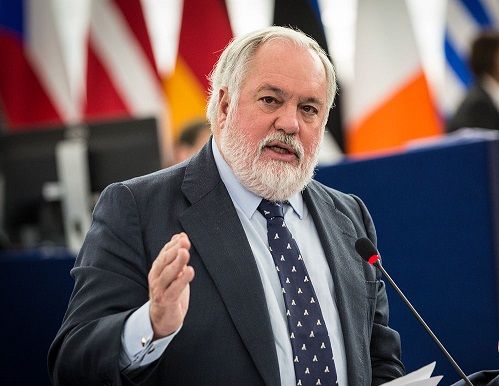EU climate chief calls for legally binding COP21 deal
European Climate and Energy Commissioner Miguel Arias Canete has called for the upcoming UN climate deal to be legally binding and to include regular reviews

The European Union’s climate chief called on Thursday for a proposed United Nations’ climate deal to be legally binding and to include regular reviews to ensure its success.
European Climate and Energy Commissioner Miguel Arias Canete (pictured right) urged nations including India and Saudi Arabia to submit their climate pledges to the UN as soon as possible and said technical work on the global agreement must be scaled up to keep pace with strong political will.
The 195 UN member states are due to meet in Paris from 30 November to 11 December to finalise a historic climate agreement with the aim of cutting greenhouse gas emissions and limiting global average temperature increase to 2C above pre-industrial levels.
The negotiating text for the deal is still currently more than 80 pages long and nations such as India and Saudi Arabia have yet to deliver their plans to cut emissions that the UN has requested in the build up to the summit.
Canete said: "It must be an ambitious agreement. I have established our priorities and we are going to fight for them," he told a news conference in Brussels. It will be an extremely difficult negotiation, but what I have seen is that there is political will."
Canete said that the priorities for a global climate deal should be legal certainty, a review every five years, clear enforcement regulations, an interim 2050 goal of cutting global emissions by 60 per cent versus 2010, and the inclusion of a target of virtually zero emissions by the end of the century.
The EU and developing countries are among those calling for an internationally binding text, whilst nations including the United States, want the enforcement of any agreement to be limited to a national level.
The EU was the first major economy to submit its Intended Nationally Determined Contribution (INDC) to the UN in March and has pledged to cut emissions by at least 40 per cent by 2030 compared to 1990 levels.





